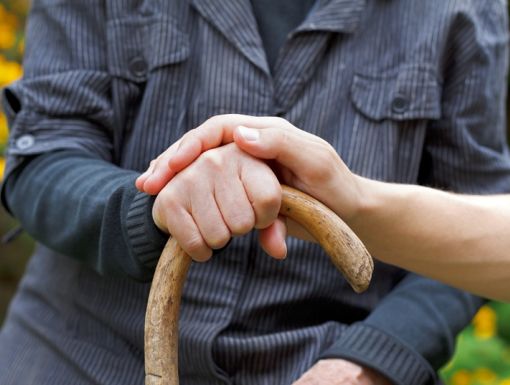
Dementia and the Role of a Caregiver
More than 5 million Americans are living with dementia, and most people have a loved one, extended relative or friend with this disease. Dementia is a general term meaning cognitive difficulty more than expected for age, and trouble managing daily living tasks like driving or managing medications. It includes Alzheimer’s disease, which is one main type of dementia that disrupts a person’s memory, thinking and behavior.
Alzheimer’s is the most common form of dementia with a new diagnosis every 67 seconds in the United States. There are also other types of dementia that fall under this umbrella category, including vascular dementia, Lewy body dementia, and frontotemporal dementia.
It is important for dementia caregivers to create a plan of care with loved ones before their progression is too far along. As your loved one progresses through the disease, they will require changes in the level of care given to them. The following symptoms are what caregivers to expect within each of the three stages of progression:
Mild Dementia
- Difficulty learning and remembering new information
- Struggling with planning and managing complicated activities such as managing finances that they could previously do
- Minimizing their memory trouble or not having awareness of it
Moderate Dementia
- Severe trouble with forgetfulness
- Less consistent with hygiene
- More trouble finding words
- Significantly reduced motivation and doing a lot less during the day
- Deferring more to family around decisions or being very resistant to help
Severe Dementia
- Extensive memory loss
- Limited mobility
- Loss of appetite and possibly trouble swallowing Bowel and bladder control issues
- Difficulty recognizing family members and caregivers
Not only is dementia hard on the patient, but it is both mentally and physically exhausting for their caregiver. Many caregivers experience increased stress during the moderate and severe stages of the disease. They might also suffer from anticipatory grief due to the impending death of their loved ones.
It is important for caregivers to seek support to help deal with these issues and ensure that they maintain their personal health and well-being so that they can better care for a loved one. Here are some tips caregivers should consider for themselves.
- Make time for you. You should participate in activities outside your role as a caregiver such as going to a movie or pursuing a hobby.
- Talk to others. You should relieve stress by talking to a family member or friend that will listen. You might find it helpful to talk to a professional or join a support group.
- Get temporary help. Ask a friend to spend an evening with your loved one or hire a home healthcare worker for regular breaks.
- Accept your emotions. Many caregivers experience moments of frustration, sadness or resentment. These are normal and must be accepted in order to move forward
- Know when to make a change. The time may come when you can no longer safely care for your loved one. Making a change may be what is best for everyone.
There are many resources that caregivers can utilize such as the Alzheimer's Association or the Area Agency on Aging. It is important for caregivers to have a strong support system so that they can effectively care for a loved one battling Alzheimer’s disease and dementia.



